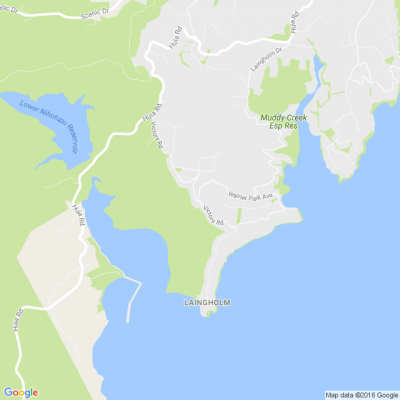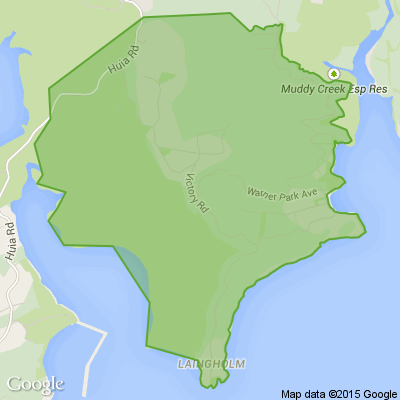Almost 1000 bus services will be suspended across Auckland as authorities try to encourage more people onto public transport and ahead of major rail outages next year that would see some trains replaced by buses.
Some 12,000 bus services across Auckland will continue every day, however, which AT said accounts for more than 85 per cent of the network. Those most impacted by the removal of services included the City Link, the Inner Link and the Northern Express, with between 26 and 53 scheduled buses cut for each route every day.
Buses operating in and around Auckland’s central suburbs would see the greatest number of removed services. In total, 931 services a day would be discontinued across the city from Sunday, November 6.
Auckland Transport announced the reduced services to lower the number of cancelled buses and said it would give public transit users “more certainty”, a decision which has been called a cynical and terrible move for commuters and users.
AT’s group manager of Metro Services Darek Koper said an ongoing shortage of bus drivers meant AT hadn’t been able to deliver the full scheduled service for “some time now”.
“This year we have struggled to operate our full bus timetable because of the effects of the national driver shortage, which has led to far more cancellations ... than we would usually see,” Koper said.
National’s transport spokesman Simeon Brown criticised a lack of focus on keeping public transport efficient and reliable and the Public Transport Users’ Association also lambasted AT’s failure to ensure buses could arrive as scheduled.
Koper admitted the cuts, which will remove services riddled by frequent cancellations, were “not the answer” to ongoing service disruptions and would limit the growth of public transport use.
The decision comes ahead of a year of major disruption on several Auckland rail lines that would see buses replace trains amid the major $330 million rail network rebuild.
Ongoing and regular bus cancellations have frustrated passengers since April but Koper said the timetable changes would reduce any further cancellations and give passengers more certainty when planning their trips.
“We’re not taking anything away that’s currently running. We are just temporarily removing them in the timetable, so they won’t show up and then appear as cancelled,” Koper said.
AT aimed to keep a number of scheduled services, including the first and last trip of the day and school buses and city routes with high patronage of students.
“We are still running 12,000 bus trips a day and we’re working on adding services back to our timetables as soon as bus operators can recruit more drivers.”
National’s Simeon Brown laid partial blame for the timetable cuts on the Government for making it difficult for bus operators to find new staff.
“These service cuts by Auckland Transport will cause additional disruption for public transport users and are partially due to the Government keeping immigration settings so tight that it is impossible for businesses to find staff, including bus drivers,” he said.
“The Government has spent the last five years spending tens of millions on pet projects like light rail and a cycling bridge across the Harbour Bridge which have gone nowhere, when their focus should have been on making sure that the existing public transport services were run efficiently and reliably.”
The Public Transport Users’ Association co-ordinator Jon Reeves said: “It seems like AT is just trying to cover their derrieres to make their statistics and data look better by simply wiping off scheduled services they couldn’t deliver and then saying that 100 per cent of [scheduled buses] turn up.
“I would suggest it is a cynical move, and it’s certainly not in passengers’ favour. AT is there to deliver a service, and they’re failing when the buses aren’t even turning up.”
A spokesman for Transport Minister Michael Wood could not comment on the decision to cut services as it was an operational matter for AT. Wood did, however, say the Government was committed to well-serviced public transport and having enough bus drivers was crucial.
“It is clear that there are currently challenges recruiting bus drivers in many of our cities around New Zealand. Our Government recognises that improving the conditions of drivers will make it easier to recruit and retain the workforce, allowing frequent and reliable bus services.”
“That’s why we are moving ahead with reforms to the public transport operating model, introducing Fair Pay Agreements, and yesterday announced [funding] to support the sector to standardise minimum base wage rates towards a target rate, which will help recruit and retain drivers,” Wood said.
Koper said there had already been moves to improve staffing numbers.
“There have been some positive movements around bus driving as a vocation, benefiting both existing drivers and supporting recruitment drives.
“With funding support from Auckland Council and Waka Kotahi, there has been two recent increases in base remuneration for drivers with a further increase through government funding,” he said.
The Government announced on Sunday it is spending $61 million to lift bus driver wages to address nationwide worker shortages.
Wood said the money - allocated in this year’s Budget - would be spent over four years to lift base wage rates towards $30 an hour for urban services and $28 an hour for regional services.
He said there were about 800 drivers needed across the country.
AT needed 500 of those drivers to meet the shortfall. Recruitment of drivers in east Auckland had already enabled a return to full timetabled services since their removal there in May.
The Herald approached Auckland Mayor Wayne Brown’s office for comment but did not receive a response.
Last month, however, Wayne Brown told AT in a letter it needed a “complete change in approach”.
“You appear to have been focused on changing how Aucklanders live, using transport policy and services as a tool,” Wayne Brown said.
“Instead, AT must seek to deeply understand how Aucklanders actually live now, how they want to live in the future, and deliver transport services that support those aspirations.”
In response to the letter, AT Interim chief executive Mark Lambert said the AT team is looking forward to working constructively with the Mayor, Councillors, Local Boards and communities.
“We agree with the mayor that a new approach is needed to better understand the needs and expectations of our communities, and how we, our decisions and the work we do impacts on people’s daily lives.”
Only hours after being elected mayor on October 8, AT chairwoman Adrienne Young-Cooper resigned after learning Wayne Brown wanted her and the directors gone.
The following day in an exclusive letter to Aucklanders in the Herald on Sunday, Wayne Brown said his immediate priority was AT.
“There is no council agency which is so important to Aucklanders or one about which you are angrier,” he wrote.
Wayne Brown has also said he wants to install transponders for buses to trigger green lights and synchronised traffic lights for general traffic to improve traffic flows.
===================================================
We're talking new year resolutions...
Tidying the house before going to bed each night, meditating upon waking or taking the stairs at work.
What’s something quick, or easy, that you started doing that made a major positive change in your life?

Share your summer photos! 📷
Taken some beautiful snaps lately? Whether it's rainbows, sunsets or a beautiful summer's day, we'd love you to share the joy with us.
Share a photo in the comments below

What word sums up 2024, neighbours?
If 2020 was the year of lockdowns, banana bread, and WFH (work from home)....
In one word, how would you define 2024?
We're excited to see what you come up with!










 Loading…
Loading…





